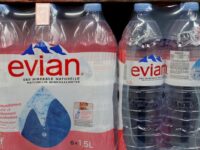The landscape of consumer expectations is shifting. Consumers are increasingly interested in understanding the origins and composition of their food and beverages, alongside the environmental and social impact of their production. This evolving landscape presents both challenges and opportunities for the industry.
Consumers want transparency and are willing to pay for it
A study by McKinsey and NielsenIQ, which looked at actual spending (versus simply declared intent) on different ESG claims, showed that products with claims had 8 per cent greater growth over the five-year study period than those that didn’t. Overall, the study “broadly revealed, in many categories, a clear and material link between ESG-related claims and consumer spending.” Claims fell into six classes: animal welfare, environmental sustainability, organic, plant-based, social responsibility, and sustainable packaging.
Navigating strict local regulations
The Australia-New Zealand F&B industry has always been at the forefront of ensuring food safety and transparency. The Australian Food and Grocery Council (AFGC) introduced the Electronic Product Information Form (ePIF), also known as PIF V6, which is an online specification for sharing information to meet regulatory requirements and industry codes. Adopted worldwide to track food ingredients and finished products, PIF V6 is a step towards B2B connectivity. However, transcription errors are common, leading to costly mistakes. Within such a highly regulated industry, innovative technology managing product data is critical.
Ensuring transparency with PLM
A modern Product Lifecycle Management (PLM) solution tracks product information and claims in distinct categories: nutritional, environmental, religious, or other attributes. An integral part of product development is being able to substantiate the claims on the package via documents, certificates, or other means. Meticulous, accessible records mustn’t just be kept, but digitally tied to each product so they can be pulled up at will.
Checks and balances can be built into PLM so that, for example, no allergens are formulated into a product where they should not be, ingredient listings call out the top allergens per the FSANZ standards, and allowable ingredient levels that vary from country to country are respected.
Consumers want to believe that claims like kosher, halal, organic, low-fat, and gluten-free are valid whenever such a claim is made. Managing ingredient and packaging vendors and their certifications is key to making sure that labels reflect the true nature of the food they represent.
PLM and PIF Manager reduce the risk of costly errors
Combining Centric PLM with Bizcaps PIF Manager – a secure web-based portal and repository solution accredited by the AFGC that manages the setup, storage, search, and sharing of PIFs directly with manufacturers, distributors, and retailers – allows teams to automatically create, maintain, and send Product Information Forms (PIFs) directly to manufacturers and retail customers via the PIF network. This seamless data exchange ensures that all product specifications are updated in real-time, eliminating the risk of errors and ensuring compliance with industry standards.
Hundreds of spreadsheets and disconnected systems are replaced with real-time data – from raw ingredients to packaging and artwork files – which is accessible anytime, from anywhere in the world. All specification information is connected directly to each product, and any changes needed cascade across the platform automatically, accurately, and securely.
Be prepared, benefit now
Take the first steps to provide the information consumers want to know. Pave the path for your organization to be ready for compliance. Learn more in Centric Software’s eBook, Minimize Risk, Maximize Innovation with PIF Manager and PLM, to learn how automating PIF data management with Centric PLM and Bizcaps can improve transparency and streamline your compliance processes.








